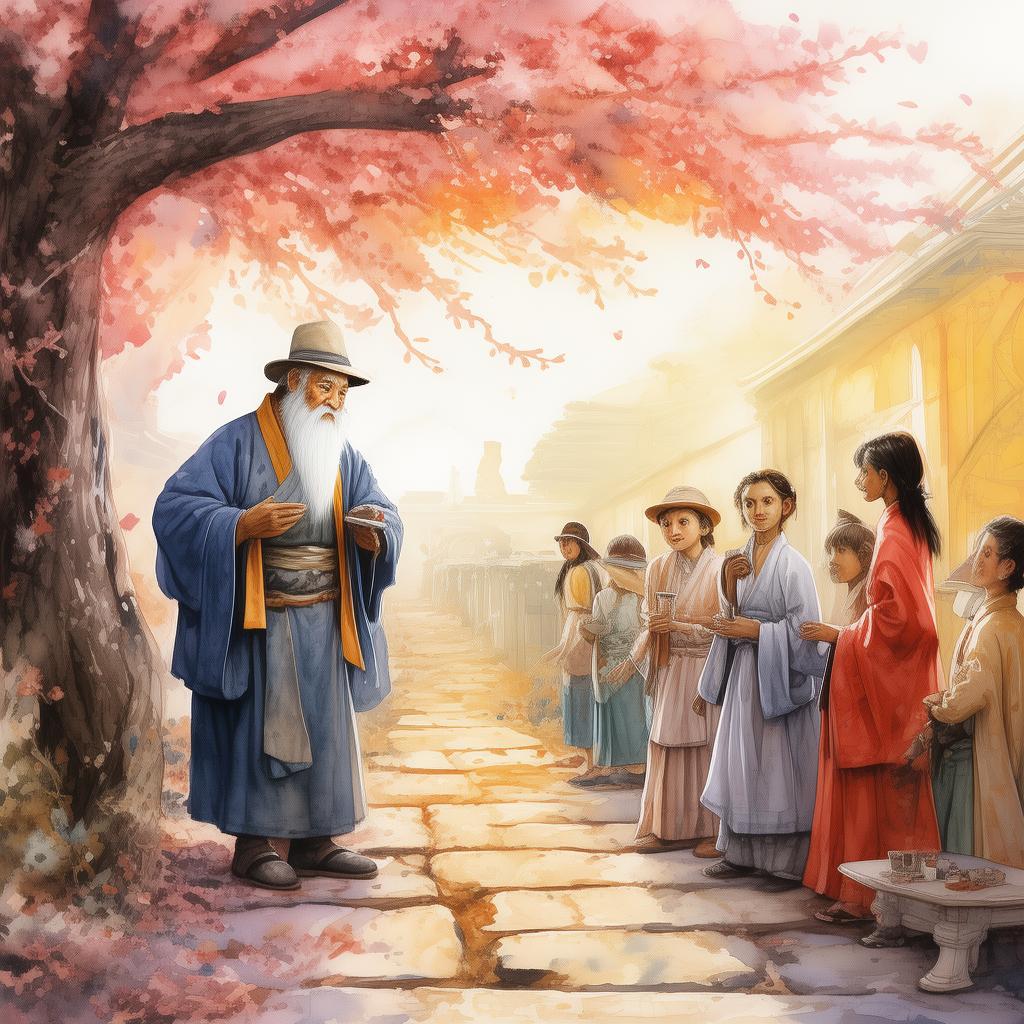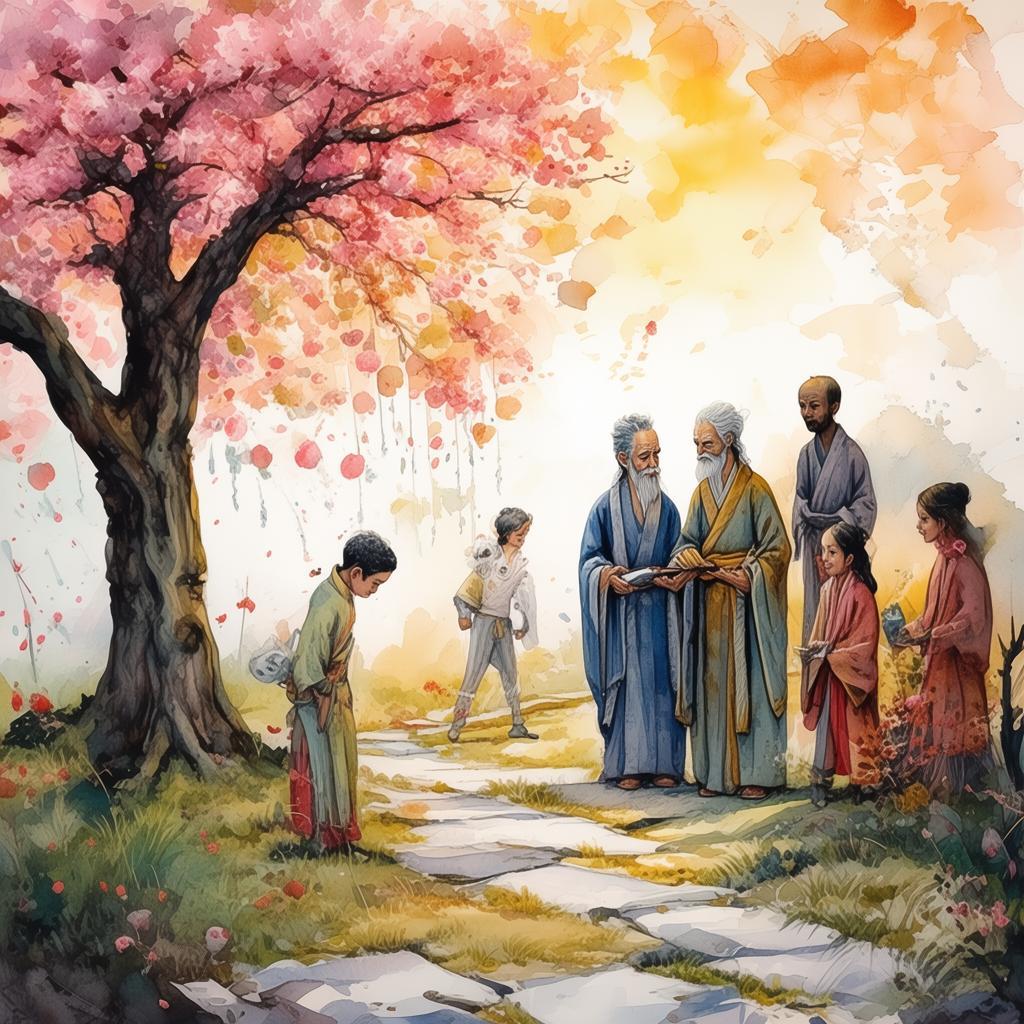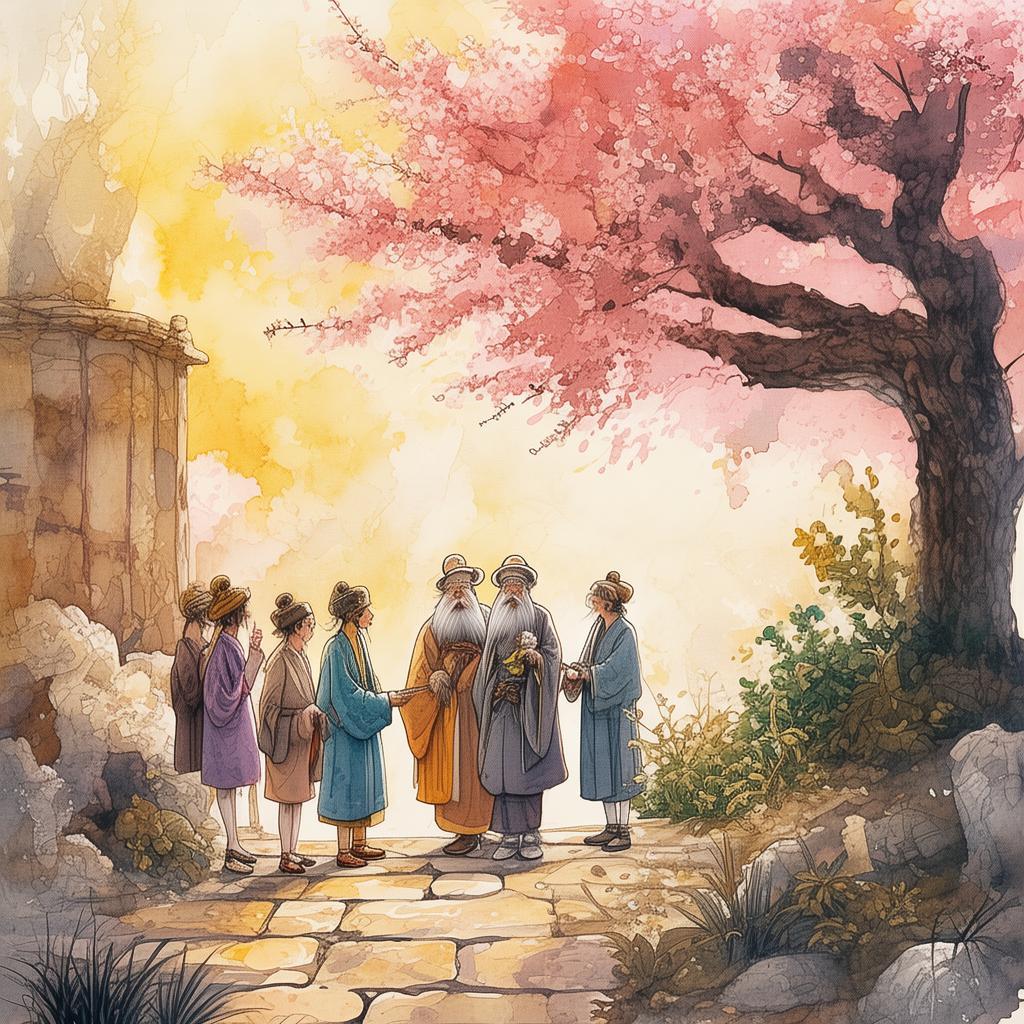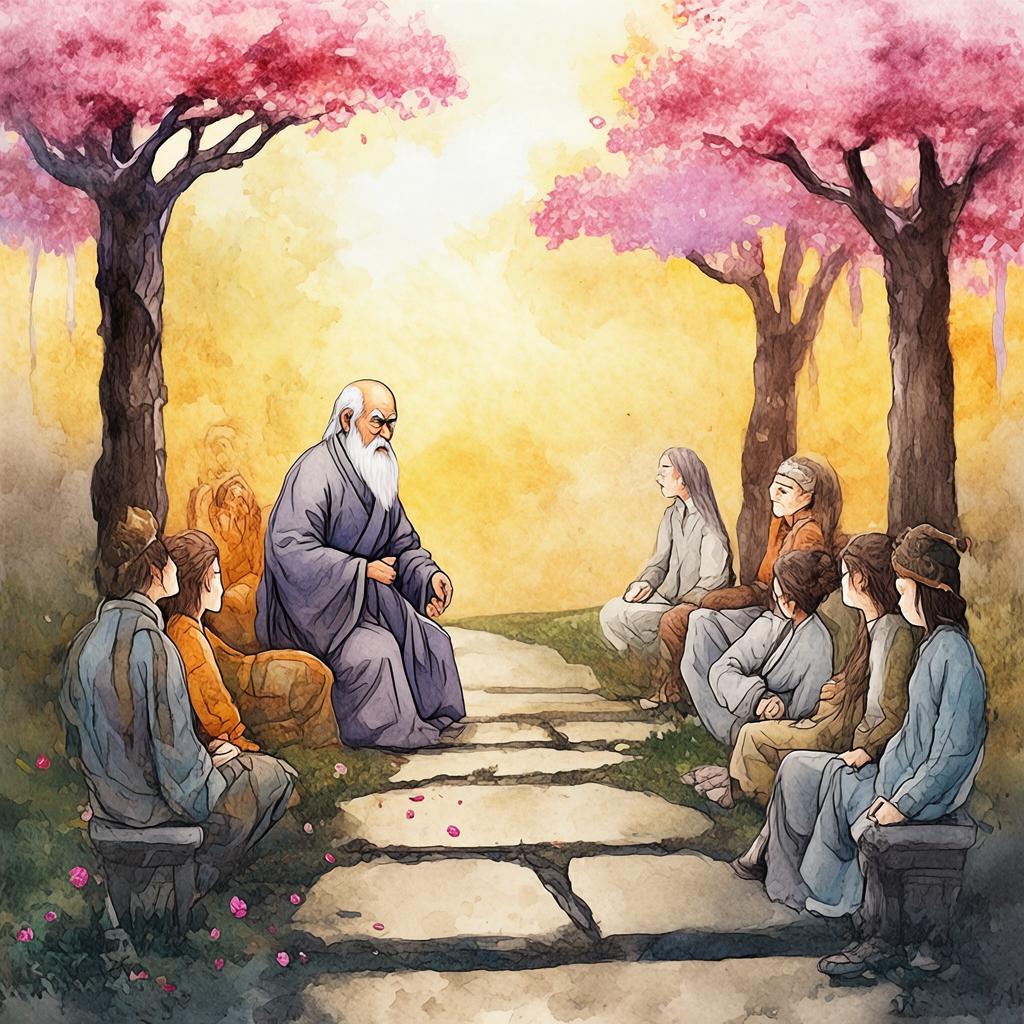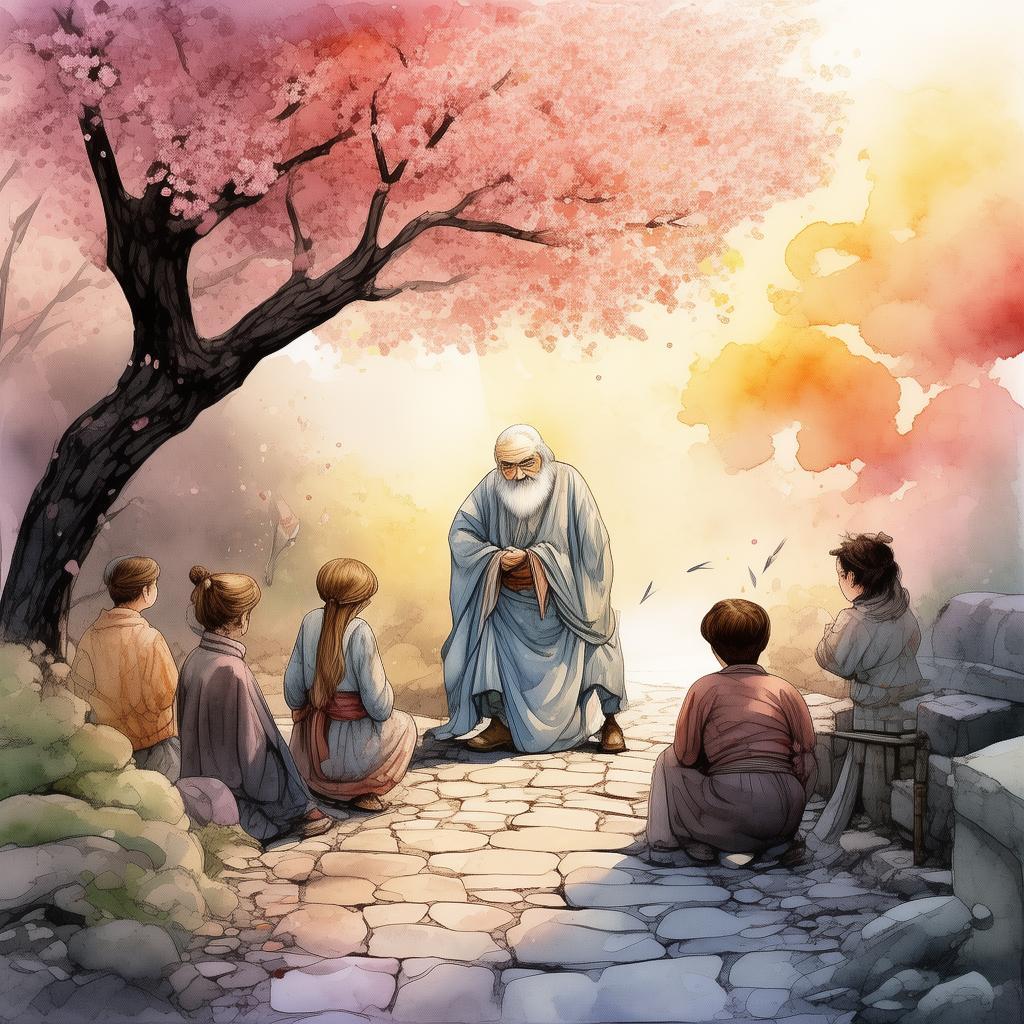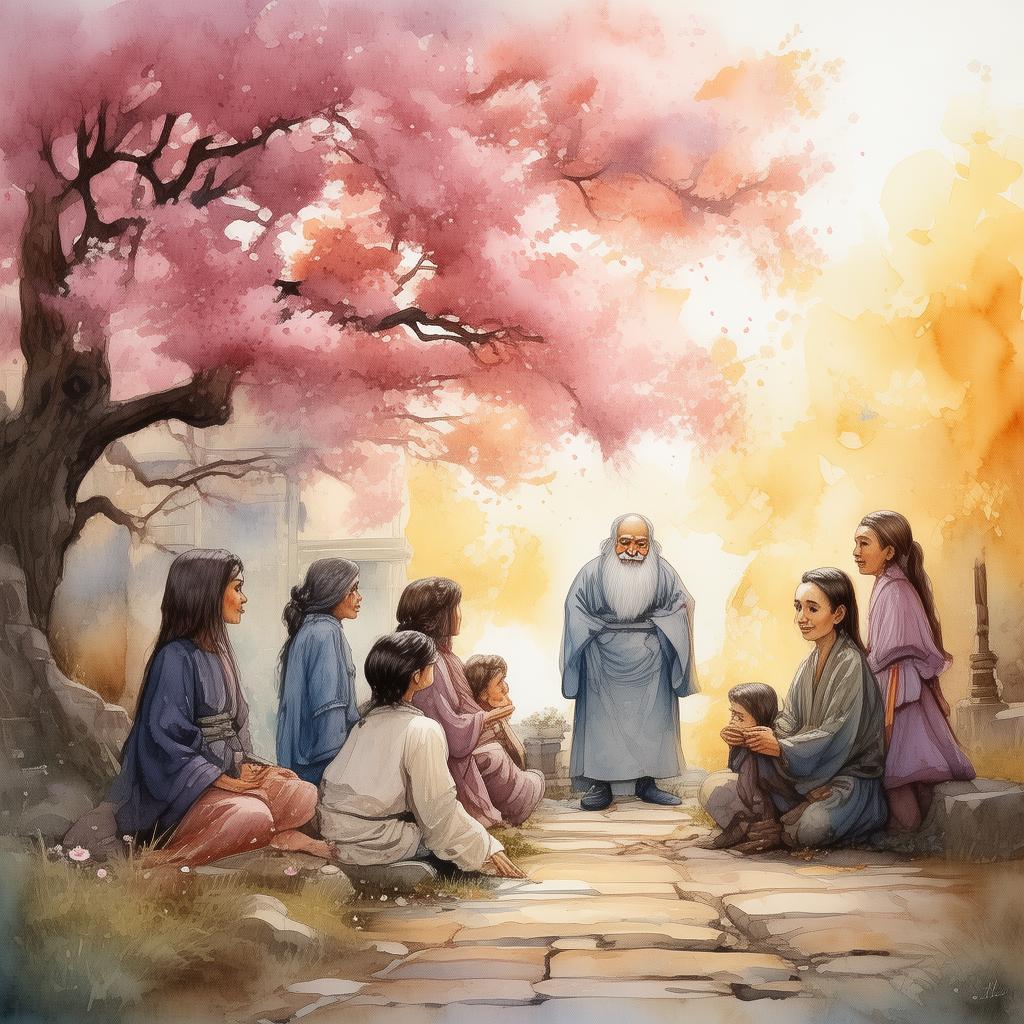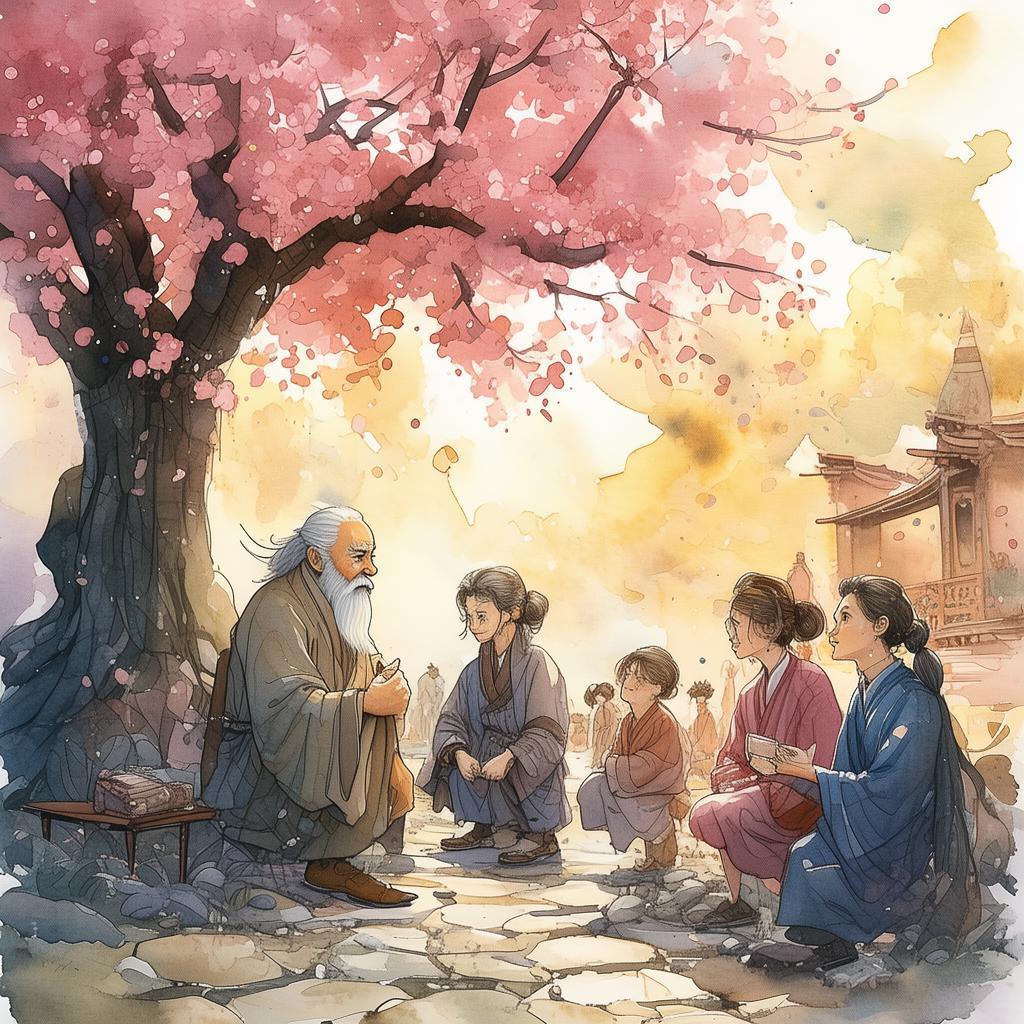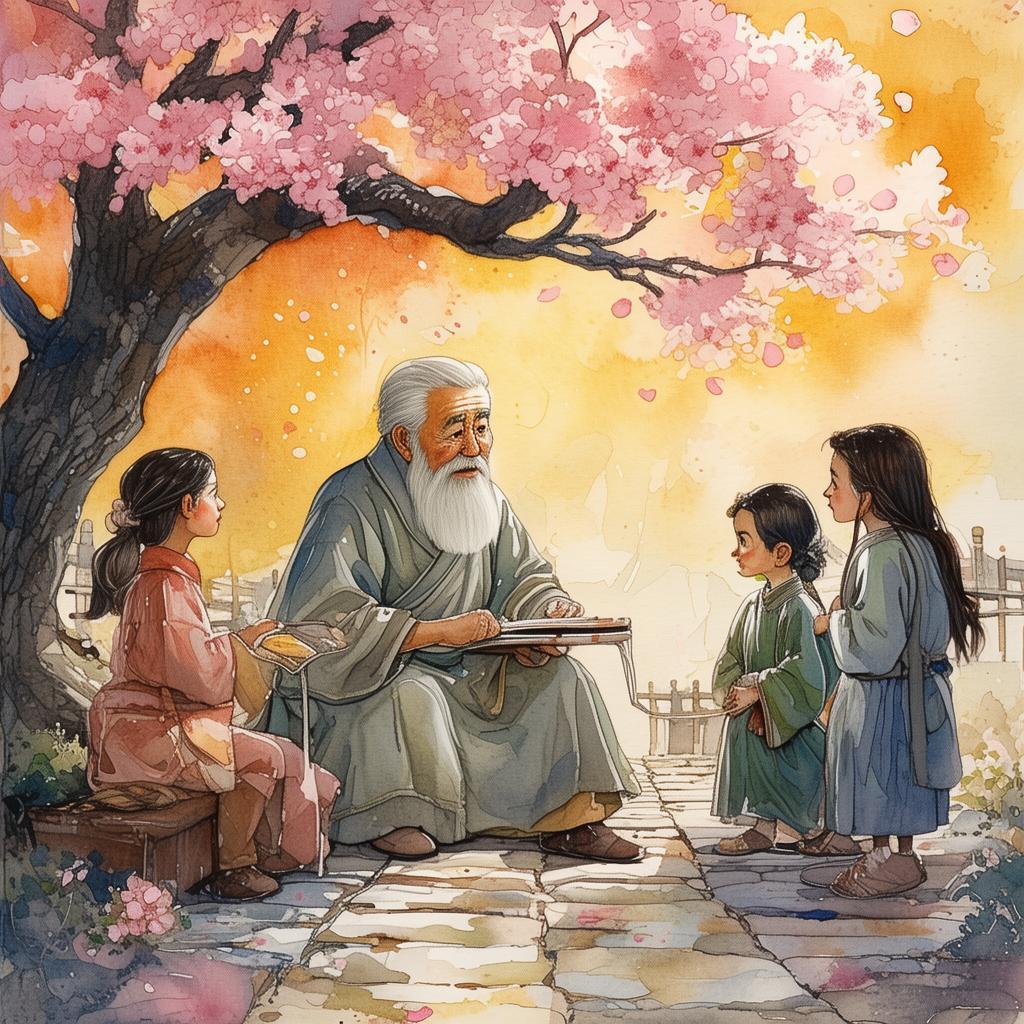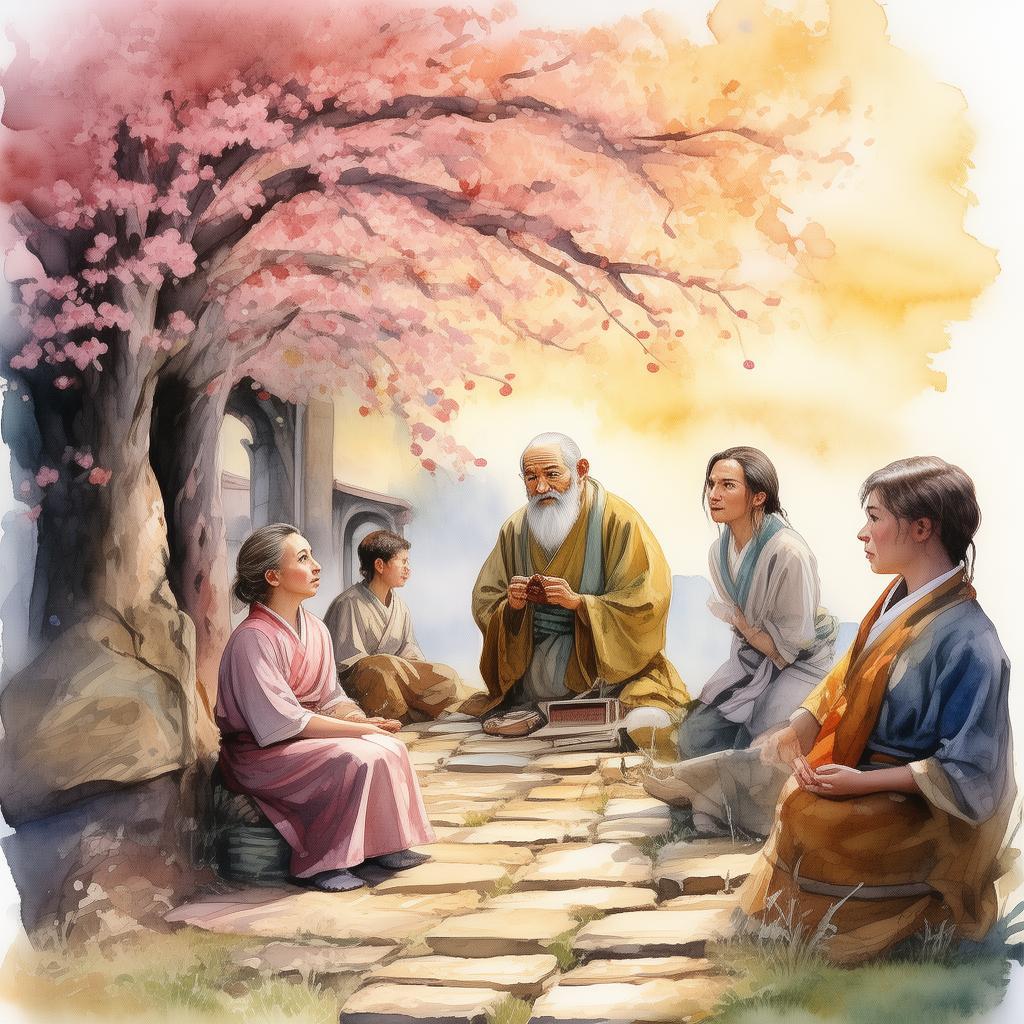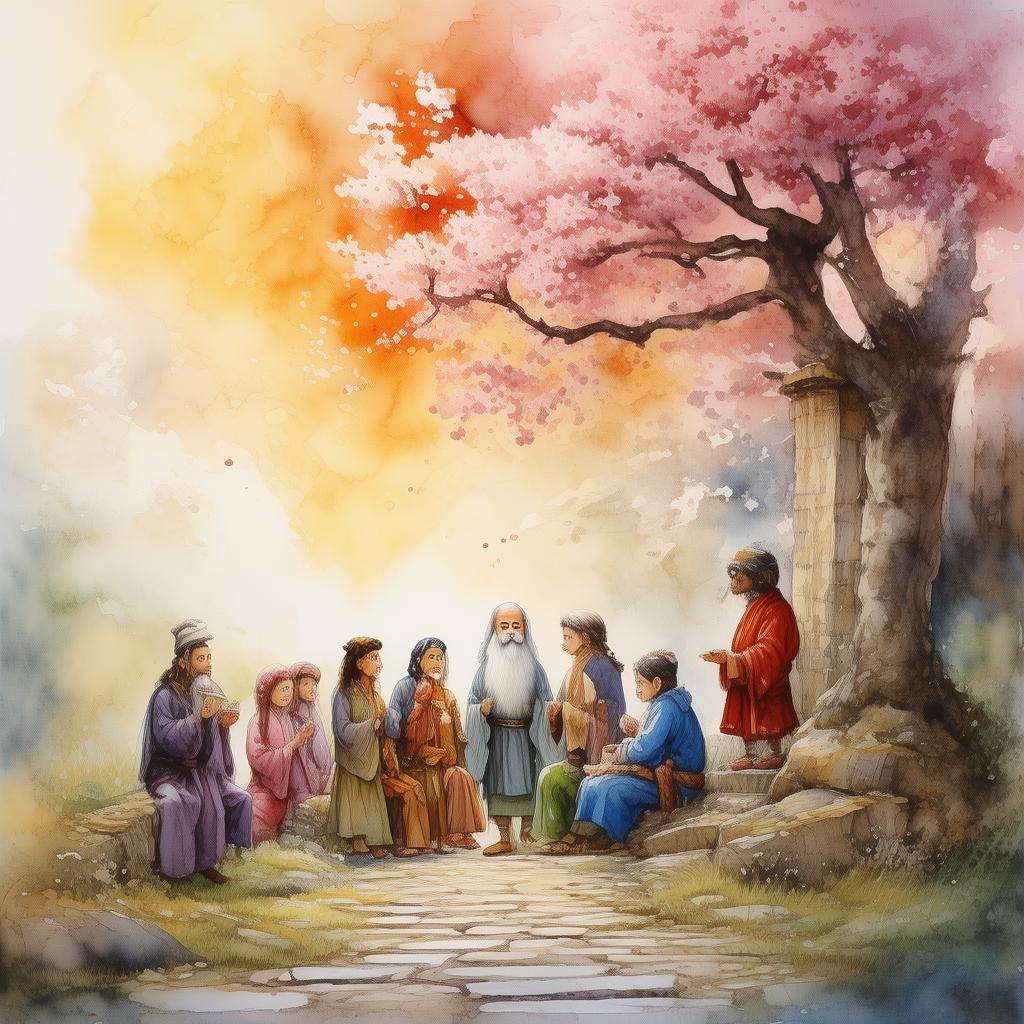From the Blindfold to the Palate: The Mastery of the Half-Blind Chef
In the bustling heart of ancient China, there lived a half-blind chef named Zhen. Known for his remarkable culinary skills and unyielding spirit, Zhen had a story that would echo through the ages, a tale of resilience, taste, and revolution.
As a child, Zhen lost his sight in a tragic accident. His father, a respected chef in the royal palace, refused to let his son's blindness define his life. He taught Zhen the art of cooking by touch and taste, nurturing his son's palate and creativity. Despite the loss of his eyesight, Zhen's passion for food only grew, and he quickly became a legend in his own right.
In the royal kitchens, Zhen was a master of traditional dishes, known for his exquisite balance of flavors and meticulous presentation. His fame reached far and wide, and soon, he was invited to participate in the prestigious culinary competition, "The Taste of Emperors." Here, chefs from all corners of the land would gather to showcase their talents and vie for the title of the most skilled chef in the land.
The competition was fierce, with chefs from the most esteemed households and royal kitchens present. Each contestant had spent years perfecting their craft, but Zhen's unique approach to cooking was both intriguing and daunting to the other competitors. He could not rely on visual appeal or the appearance of his dishes; instead, his success rested entirely on the power of his palate.
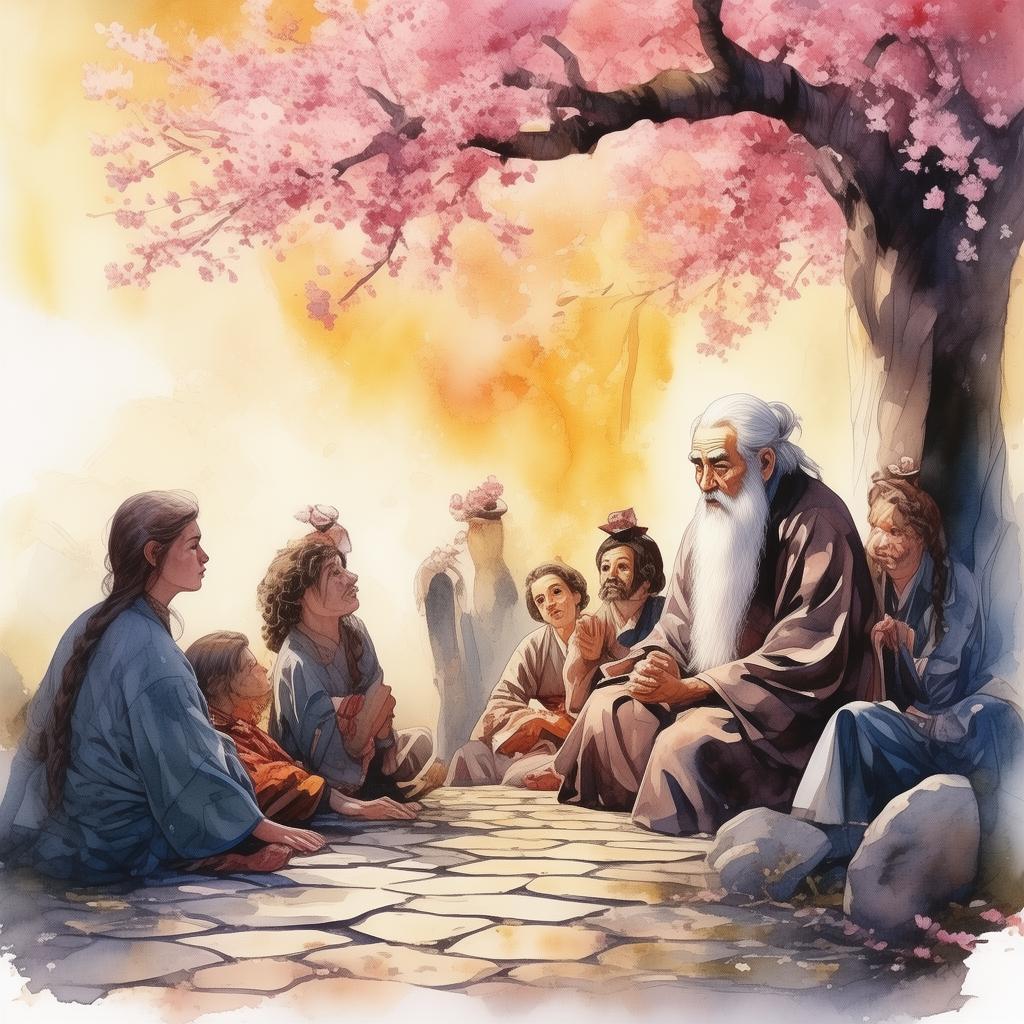
The day of the competition arrived, and the air was thick with tension. The judges, including the Emperor himself, sat in their thrones, their palates ready to discern the finest of flavors. Zhen, with his blindfold securely in place, took his place at the podium, his heart pounding with a mix of fear and excitement.
The competition began with a classic dish, "The Peony of Spring," a delicate dish made of finely minced meat, wrapped around a delicate mushroom, and presented with a delicate garnish of edible flowers. The other chefs took turns, their dishes landing with a resounding clatter on the table. The Emperor's eyes gleamed with anticipation as each dish was unveiled.
It was Zhen's turn. With deft hands, he moved through the ingredients, his sense of touch guiding him as he seasoned and plated his dish. The air was filled with the scent of sautéed mushrooms and the savory hint of meat. As he placed his dish on the table, the judges exchanged looks of intrigue.
The Emperor lifted the lid of the dish, and a soft gasp escaped from the crowd. Zhen's "Peony of Spring" was not only visually stunning but also a testament to his skill. The Emperor, who had been known for his discerning taste, took a bite and closed his eyes, savoring the complexity of the dish.
The competition continued, with each chef striving to outdo the last. Yet, it was Zhen's dish that remained the highlight. His "Dragon's Breath," a fiery, spicy dish that seemed to embody the essence of the dragon's roar, left the judges in awe. Zhen's culinary revolution was not just a series of dishes but a symphony of flavors that spoke to the soul.
As the final dish was presented and the judges deliberated, the crowd erupted into cheers. Zhen, with his blindfold still securely in place, took the stage and bowed. The Emperor rose to his feet, a smile on his lips. "You have not only won this competition," he said, "but you have changed the very essence of culinary art."
Zhen's revolutionary approach to cooking, where the sight was secondary to the taste, had ignited a fire that would spread throughout the land. His success became a beacon of hope for those who believed in the power of the palate over the eye.
The story of the Half-Blind Chef, Zhen, became a legend, inspiring generations of chefs to follow in his footsteps. His revolution was not just about changing the way dishes were prepared, but about changing the way the world saw culinary art. And in a world where culinary mastery was revered, Zhen's legacy was a testament to the power of taste and the indomitable human spirit.
✨ Original Statement ✨
All articles published on this website (including but not limited to text, images, videos, and other content) are original or authorized for reposting and are protected by relevant laws. Without the explicit written permission of this website, no individual or organization may copy, modify, repost, or use the content for commercial purposes.
If you need to quote or cooperate, please contact this site for authorization. We reserve the right to pursue legal responsibility for any unauthorized use.
Hereby declared.
